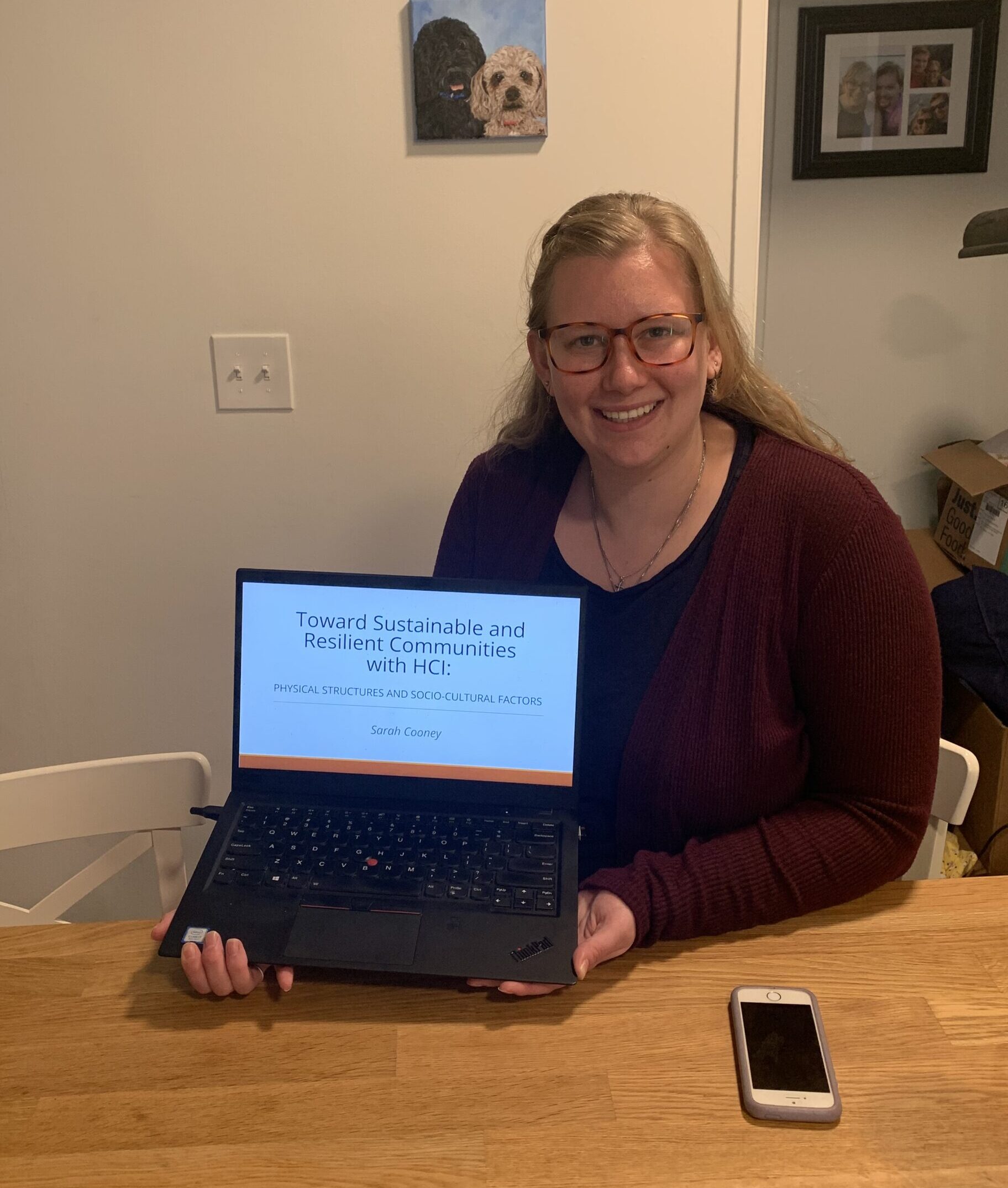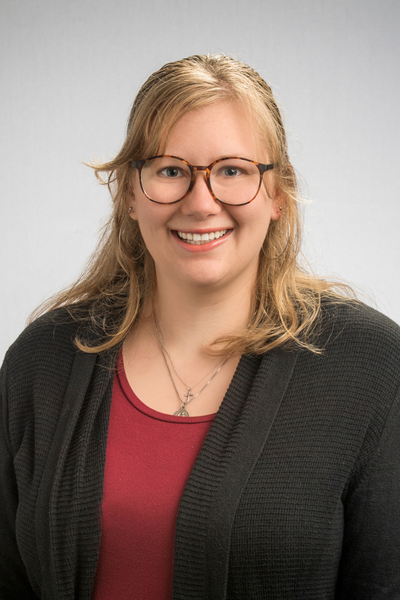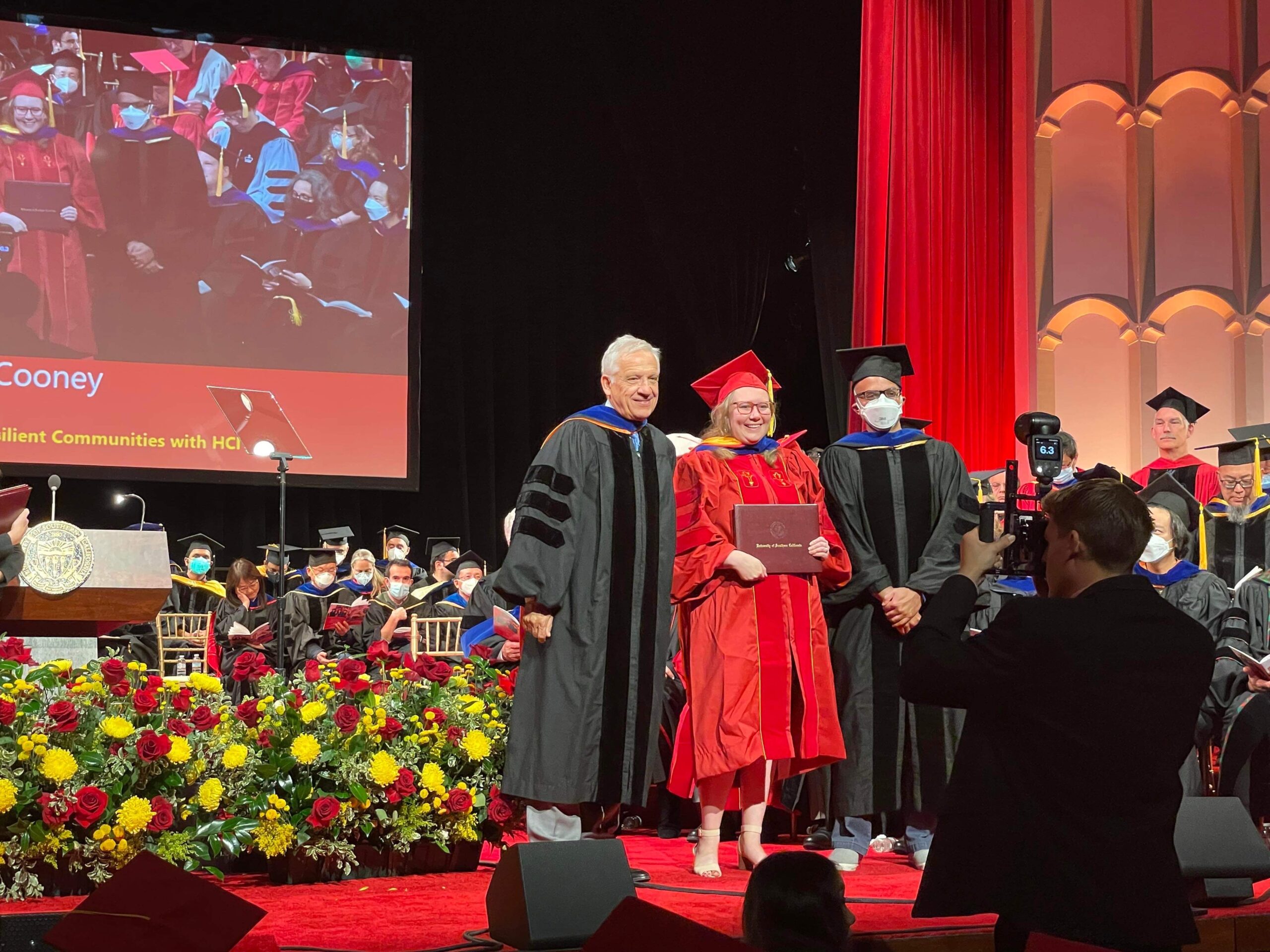Our alumni have gone out into the world to achieve great things. We wanted to explore how CAIS impacted their lives and shaped their path. We interviewed Sarah Cooney, PhD alum in computer science, to learn more about her experiences here at USC and their influence in her career path. Sarah’s main interests relate to the intersection of human-computer interaction and sustainability, mainly focusing on how technology, together with cultural beliefs and values, like religious beliefs, can be used to encourage people toward living more sustainably.

Tell us a little about yourself.
I grew up in Central Pennsylvania, and after completing my undergraduate degree in the Philadelphia area in 2017 I moved to Los Angeles for graduate school at USC. After graduating in May, I moved back to Pennsylvania and in August I started as an assistant professor of computer science at Villanova University, which I am loving so far!
What sparked your initial interest in human-computer interaction and AI?
Initially I really didn’t know what part of computer science I wanted to work in, but I did know that I wanted to apply it in some way to issues of social good or social justice. This was a topic that was really prevalent throughout my undergraduate education and really inspired me to want to incorporate social justice into my future career. Finding CAIS and then later getting into HCI allowed me to connect with scholars who are thinking about exactly the kind of issues that interest me and see how I could bring my computer science skills to these problems.

What do you find compelling about operating between the worlds of social work and computer science?
I think what is most compelling is that it is impossible to be an expert in everything. As much as I can educate myself and read books or literature, I don’t have the same deep background in social work or sociology that colleagues in other fields do, and I think when we are working on these messy real-world problems that have both interesting computational and human elements it’s so important to be able to lean on the expertise of folks who do have more knowledge in these areas.
Tell us about the importance of understanding how technology interacts with cultural factors and how it relates to sustainability.
I don’t think technology is going anywhere. As much as there are issues of sustainability inherent in the production of technology and energy use, I can’t imagine society giving up smartphones or the internet or other technology that’s embedded in their day to day lives. At the same time, we are facing a huge crisis in terms of sustainability. This crisis is not just about science, because a lot of it is really about changing embedded cultural ideals around consumption and how we relate to finite resources and the natural world. So I think being able to use the technology that’s become ubiquitous in many ways to help people grapple with this huge crisis of both climate and culture is very important and hopefully can have a powerful impact.
Tell us about how USC impacted your decision to pursue teaching and continuing research.
One thing I appreciate about USC’s program was that we were required to TA two semesters, which is not the case in some places. I had done some tutoring in undergrad and was pretty sure I wanted to continue with a career that put a focus on teaching, but having the TA experience allowed me to really confirm that decision. I also want to shout out the Center for Excellence in Teaching (CET) and their seminar series for future faculty members. Participating in these sessions also helped me learn a lot about teaching before I had to run a class on my own.

How has your experience at USC prepared you for your current research and work?
One of the things I loved about my time at USC is how friendly and collaborative folks were. It was the kind of environment where I felt like people wanted you to succeed, and that was very impactful. I think it helped me be intentional about a) looking for a department and university where that was also the case and b) making sure that in both my research collaborations and my classroom I am doing what I can to foster the same kind of environment.
What advice would you offer to someone considering pursuing a PhD in computer science?
Computer science is such an amazing and diverse field, and I think it is important to think about how your passions can interact and drive your research, because it does also take a lot of time and hard work.



